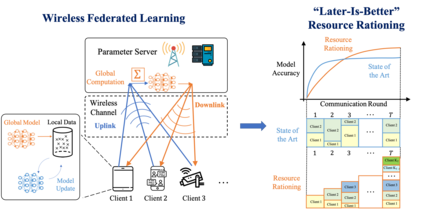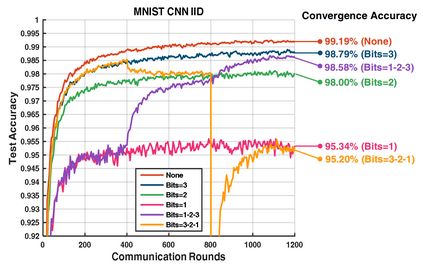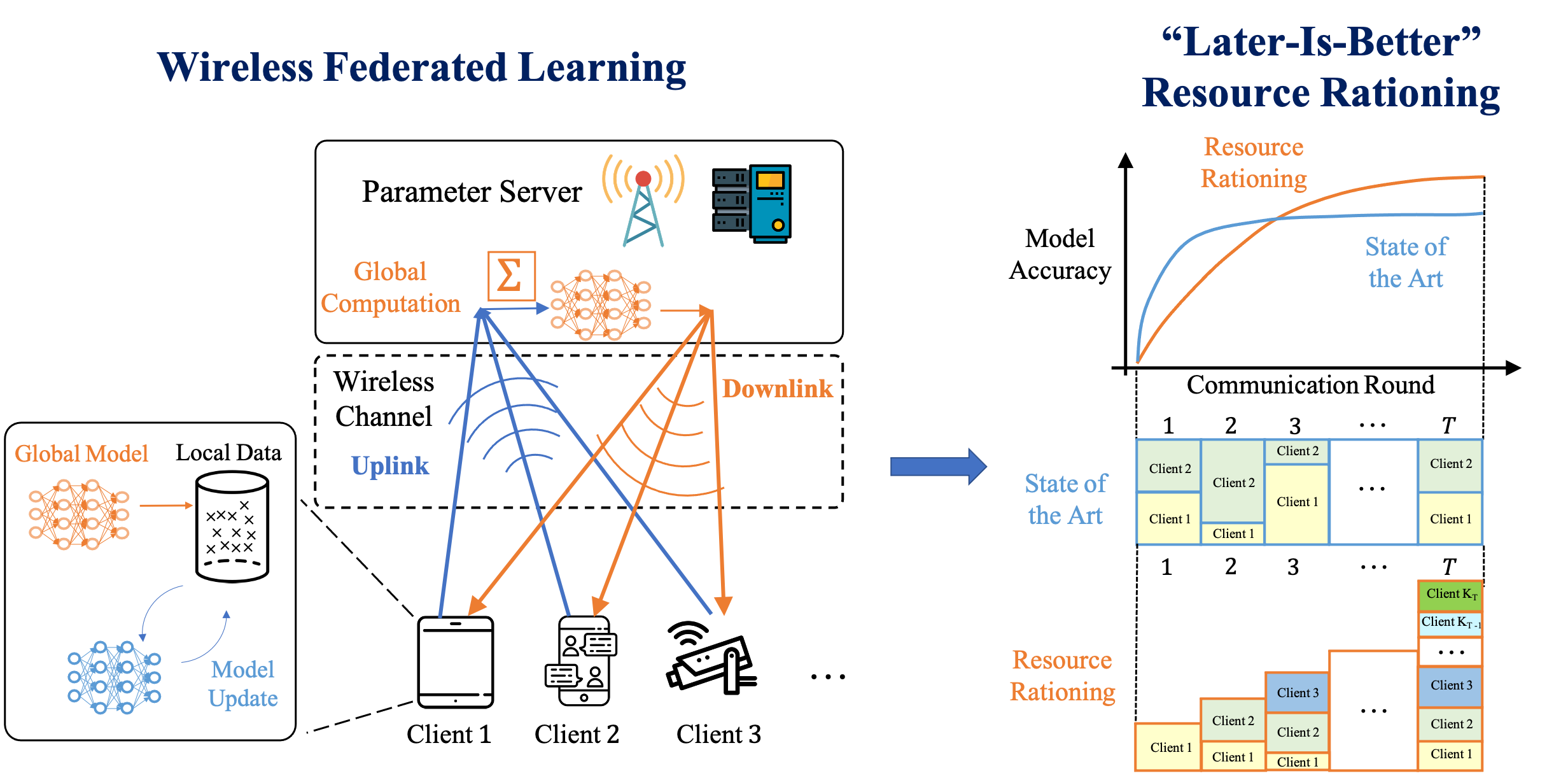We advocate a new resource allocation framework, which we term resource rationing, for wireless federated learning (FL). Unlike existing resource allocation methods for FL, resource rationing focuses on balancing resources across learning rounds so that their collective impact on the federated learning performance is explicitly captured. This new framework can be integrated seamlessly with existing resource allocation schemes to optimize the convergence of FL. In particular, a novel "later-is-better" principle is at the front and center of resource rationing, which is validated empirically in several instances of wireless FL. We also point out technical challenges and research opportunities that are worth pursuing. Resource rationing highlights the benefits of treating the emerging FL as a new class of service that has its own characteristics, and designing communication algorithms for this particular service.
翻译:我们主张一个新的资源分配框架,我们称之为资源配给,用于无线联合学习(FL ) 。 与现有的无线联合学习(FL ) 资源分配方法不同,资源配给侧重于平衡跨学习周期的资源分配方法,以便明确捕捉其对联合学习业绩的集体影响。 这一新框架可以与现有资源分配计划紧密结合,优化FL的融合。 特别是,新的“后更完善”原则处于资源配给的前沿和中心,在无线FL的几例中,这种配给得到了经验验证。 我们还指出了值得追求的技术挑战和研究机会。 资源配给强调将新兴的FL视为具有自身特点的新服务类别的好处,并为这一特定服务设计通信算法。








